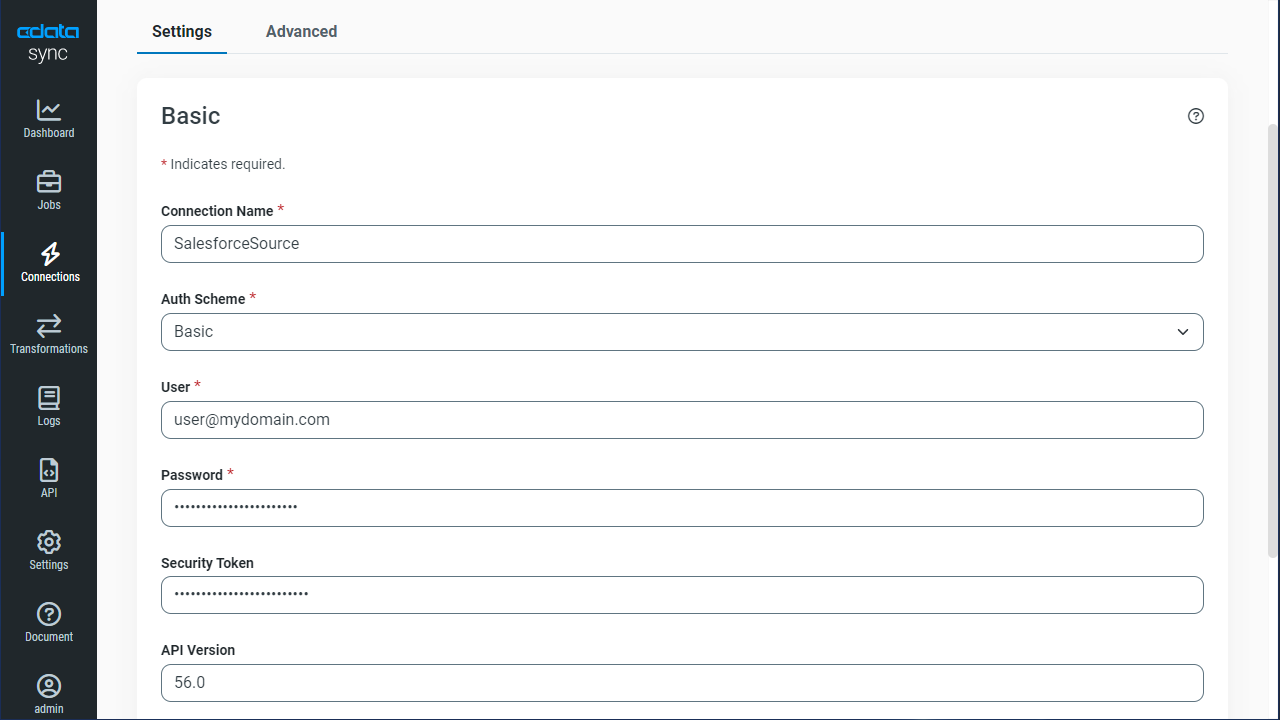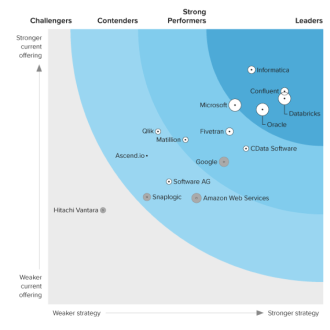Discover how a bimodal integration strategy can address the major data management challenges facing your organization today.
Get the Report →Automate Elasticsearch Data Replication to SAP HANA
Use CData Sync to customize and automate Elasticsearch data replication to SAP HANA.
Always-on applications rely on automatic failover capabilities and real-time data access. CData Sync integrates live Elasticsearch data into your SAP HANA instance, allowing you to consolidate all of your data into a single location for archiving, reporting, analytics, machine learning, artificial intelligence and more.
Configure SAP HANA as a Replication Destination
Using CData Sync, you can replicate Elasticsearch data to SAP HANA. To add a replication destination, navigate to the Connections tab.
- Click Add Connection.
- Select SAP HANA as a destination.
![Configure a Destination connection to SAP HANA.]()
- Enter the necessary connection properties. To connect to SAP HANA, set the following:
- Server: The IP address or name of the server you want to connect to.
- Port: The port where the server is running.
- Database: The name of the database.
- User: The username of a user with read/write access to the database.
- Password: The password of a user with read/write access to the database.
- Click Test Connection to ensure that the connection is configured properly.
![Configure a Destination connection.]()
- Click Save Changes.
Configure the Elasticsearch Connection
You can configure a connection to Elasticsearch from the Connections tab. To add a connection to your Elasticsearch account, navigate to the Connections tab.
- Click Add Connection.
- Select a source (Elasticsearch).
- Configure the connection properties.
Set the Server and Port connection properties to connect. To authenticate, set the User and Password properties, PKI (public key infrastructure) properties, or both. To use PKI, set the SSLClientCert, SSLClientCertType, SSLClientCertSubject, and SSLClientCertPassword properties.
The data provider uses X-Pack Security for TLS/SSL and authentication. To connect over TLS/SSL, prefix the Server value with 'https://'. Note: TLS/SSL and client authentication must be enabled on X-Pack to use PKI.
Once the data provider is connected, X-Pack will then perform user authentication and grant role permissions based on the realms you have configured.
![Configure a Source connection (Salesforce is shown).]()
- Click Connect to ensure that the connection is configured properly.
- Click Save Changes.
Configure Replication Queries
CData Sync enables you to control replication with a point-and-click interface and with SQL queries. For each replication you wish to configure, navigate to the Jobs tab and click Add Job. Select the Source and Destination for your replication.
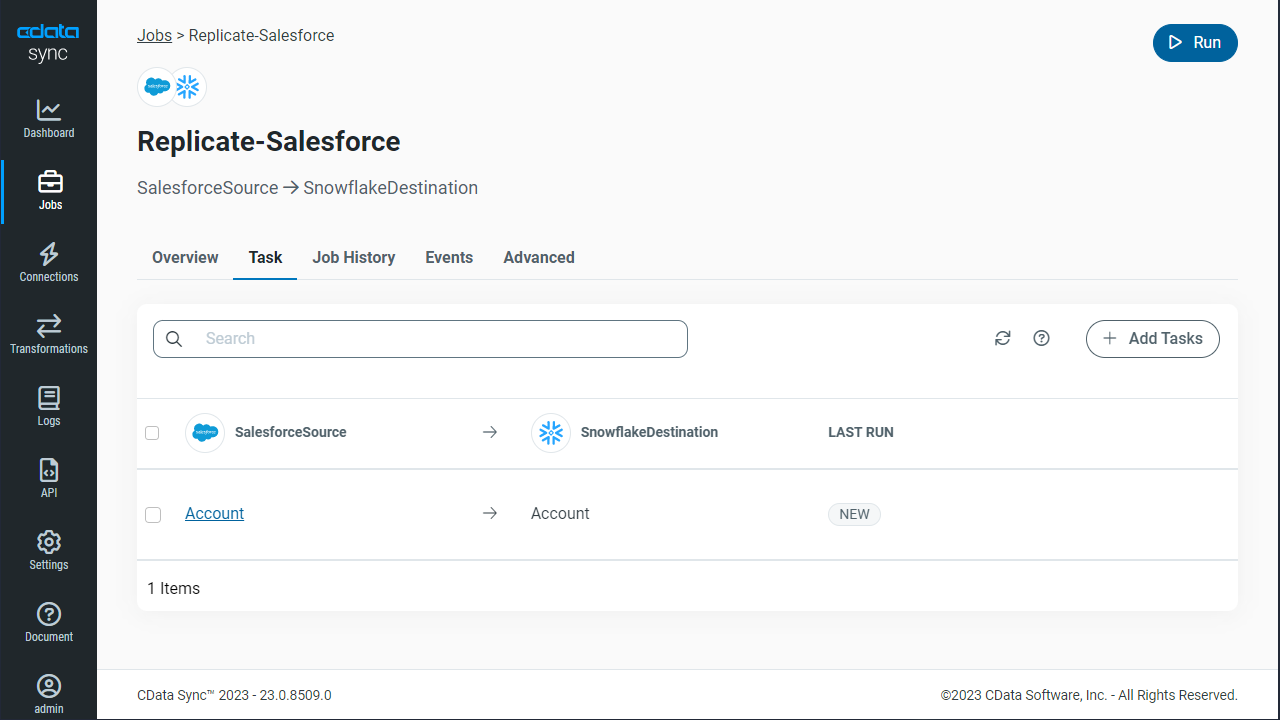
Replicate Entire Tables
To replicate an entire table, click Add Tables in the Tables section, choose the table(s) you wish to replicate, and click Add Selected Tables.
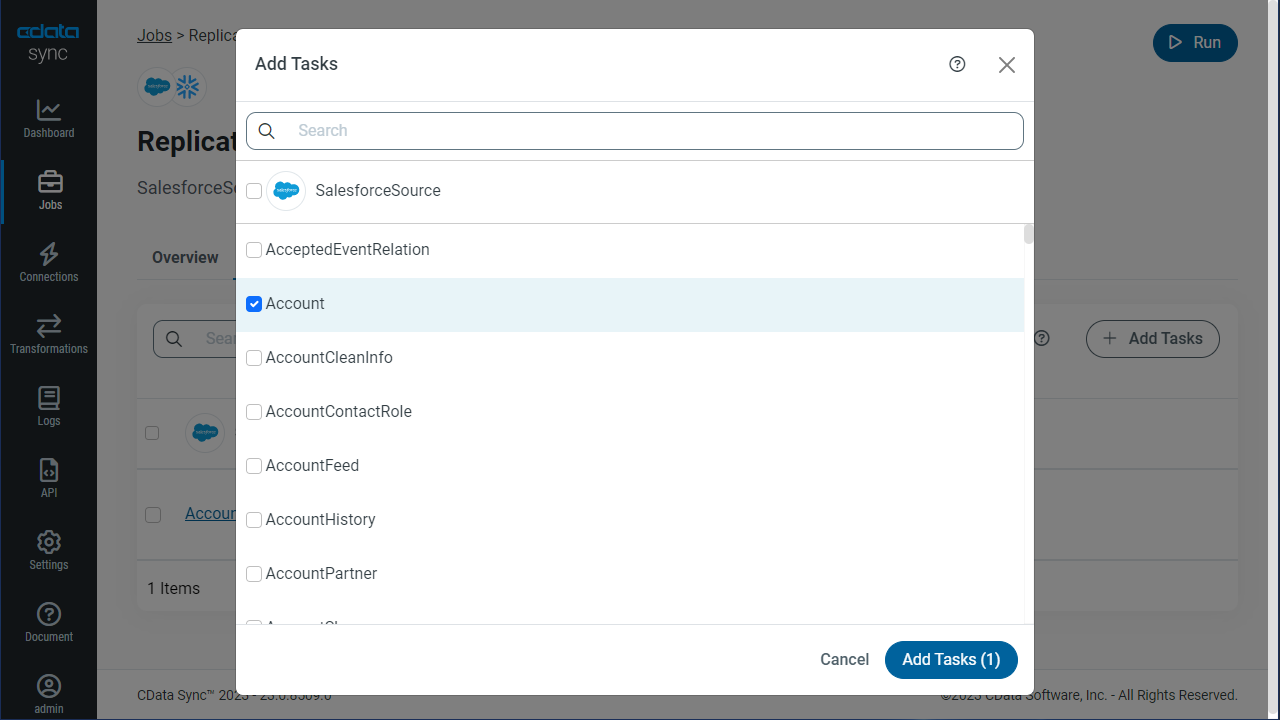
Customize Your Replication
You can use the Columns and Query tabs of a task to customize your replication. The Columns tab allows you to specify which columns to replicate, rename the columns at the destination, and even perform operations on the source data before replicating. The Query tab allows you to add filters, grouping, and sorting to the replication.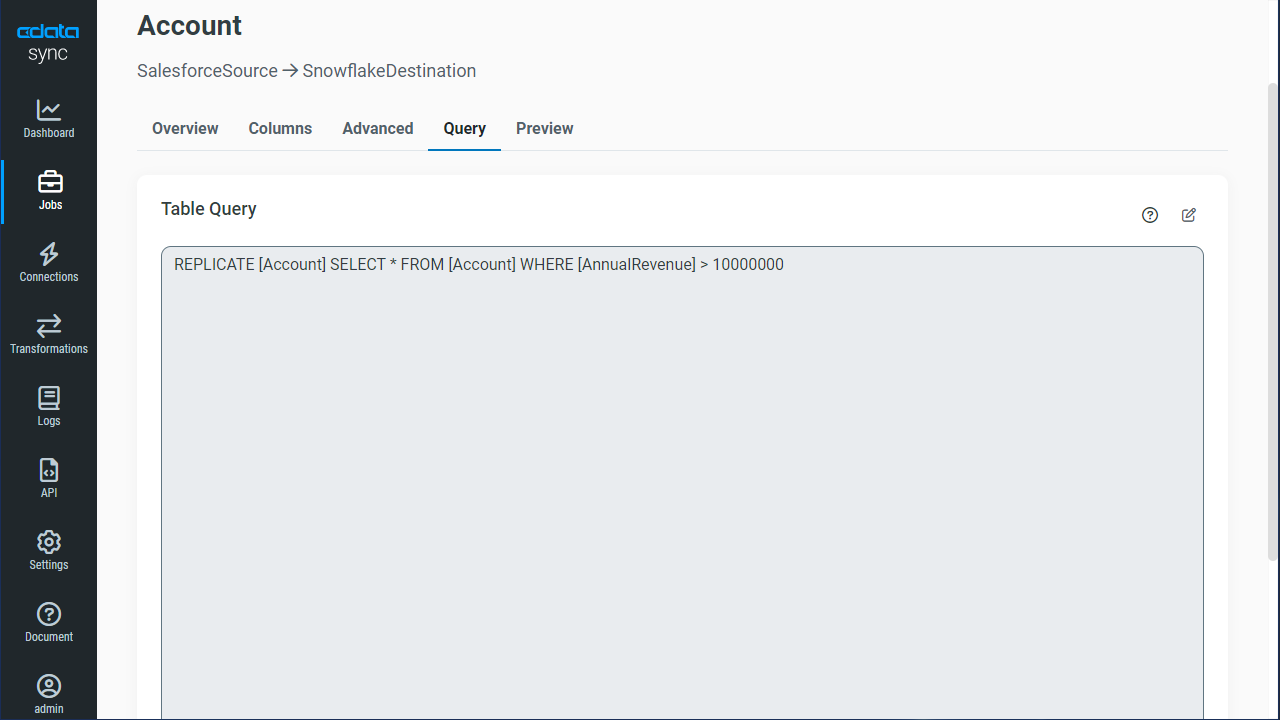
Schedule Your Replication
In the Schedule section, you can schedule a job to run automatically, configuring the job to run after specified intervals ranging from once every 10 minutes to once every month.
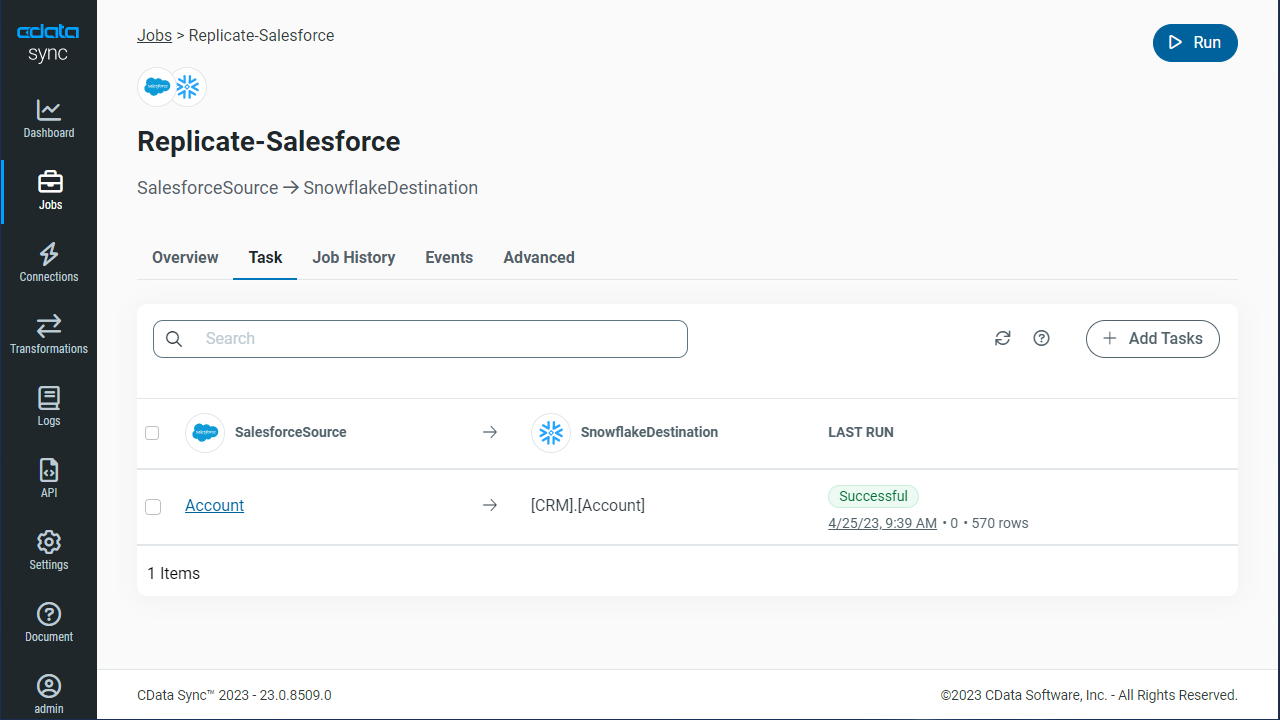
Once you have configured the replication job, click Save Changes. You can configure any number of jobs to manage the replication of your Elasticsearch data to PostgreSQL.








